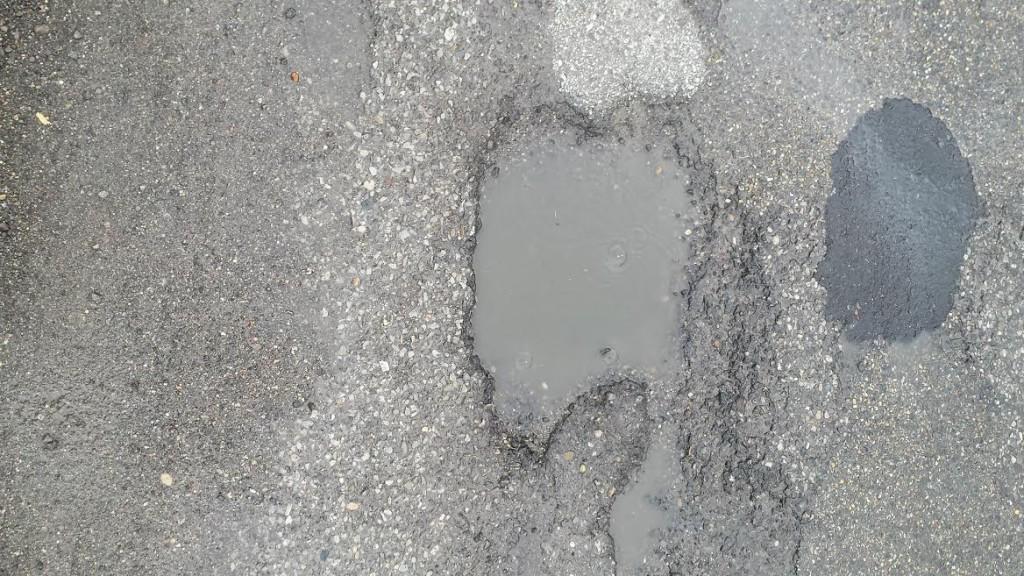Potholes endanger Michigan drivers
Potholes can be found in many places on Michigan roads.
A man is driving down Tienken Road . He glances at his mirror for a second. BANG! The wheel jerks to the right, and the man struggles to keep it straight. He pulls off to the side of the road, hazard lights on. He gets out and looks at the right-hand front tire. It’s just a floppy sack now, and the tire rim is bent. This is a common occurrence on roads in Rochester Hills, and repairs like this can cost up to $300.
Potholes are formed when rain and water seep under the pavement, and into the roadbed (the mixture of gravel, rock and sand that is put down that separates the pavement from the soil). This water then erodes the roadbed.
If it’s winter, the water can freeze and expand, causing the pavement to buckle upward. This causes bumps in the road, most commonly in a line perpendicular to the road. When this ice melts, the now-unsupported pavement can crack and sink when traffic drives over it.
Potholes can create hazards and destroy undercarriages. Hitting a pothole at medium to high speed can damage frameworks and wreck suspensions, or even cause the vehicle to swerve off the road or into oncoming traffic. Flat tires and bent rims are also sadly commonplace.
One of the major problems with the roads is the way we generally repair potholes. The by-the-book method is called throw-and-roll, which comprises of patching the pothole and compacting it with rollers for vibration plates.
What generally ends up happening is what is referred to the throw-and-go method, which is similar to the throw-and-roll method, but instead of compacting it professionally, it lets the traffic driving over it push it down. This can lead to uneven pressure, and an overall weaker patch.
Governor Rick Snyder has repeatedly called for more funds to be allotted towards repairing our roads, but leaders of the House and Senate have said that it’s unlikely the legislature will approve. The best case scenario is a boost of $200 million to $300 million of a nearly $1 billion state surplus toward the repair budget.
The most effective way to prevent damage from potholes is to be aware of them. Slow down and try to avoid them when you can, and note places that are frequently bad. Having tires with a wider profile, while not delivering that gangsta’ look, are much more practical, and lower the rate of chance of bent rims.
You can report potholes at The Pothole Hotline, 888-296-4546. “Report a Pothole” is also the first link in the Michigan Department of Transportation’s Spotlight section at www.michigan.gov/mdot.





